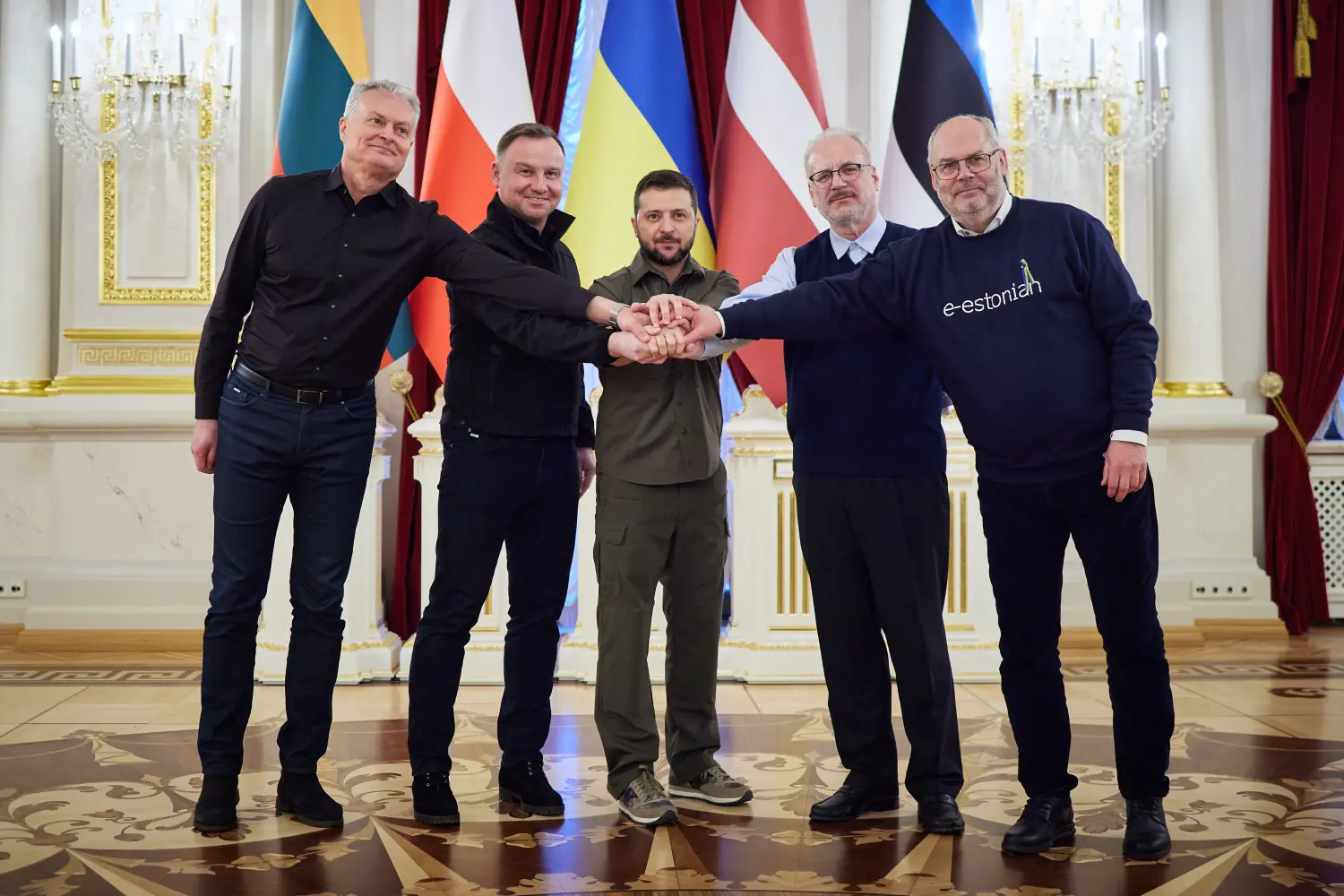Russia’s neighbors are getting nervous. Russian President Vladimir Putin has signaled he intends to broaden his war against Ukraine to include other former Soviet Union countries. Latvia, Lithuania and Estonia were once all part of the Soviet Union but are now part of the EU and NATO and are allies of Ukraine, where Russia launched a full-scale invasion in February 2022. Now, these states are worried Russia may have them in its sights as well and are warning that Europe must remain alert and vigilant and create deterrence against Putin’s hegemonic ambitions.
To help prevent such a scenario, these Baltic States have signed an agreement to create a common defense line to block Russian aggression and to reinforce NATO’s eastern border with both Russia and Belarus.
“In the light of Russia’s outgoing aggression against Ukraine. It is very important to continue our cooperation. The Baltic states solidarity must be stronger than ever,” said Arvydas Anusauskas, Lithuania’s minister of defense.
“Russia’s war in Ukraine has shown that in addition to equipment, ammunition, and manpower, physical defensive installations on the border are also needed to defend Estonia from the first meter,” Estonia’s Defense Minister Hanno Pevkur said.
Andris Spruds, Latvia’s defense minister, wrote on X, “We will establish the Baltic Defense Line to defend NATO’s Eastern flank and deny freedom of movement for our adversaries. In the lead up to the historic NATO Summit in Washington we must ensure that the Alliance is better prepared than ever to execute defense plans, strengthen air and missile defense and allocate more resources to defense.”
As part of this “Baltic Defense line,” Estonia plans to build hundreds of bunkers on its border with Russia.
“Russia’s war in Ukraine has shown that in addition to equipment, ammunition, and manpower, physical defensive installations on the border are also needed to defend Estonia from the first meter,” Estonian Defense Minster Hanno Pevkur said in a news release.
The agreement, signed by the three Baltic defense ministers, calls for the construction of “anti-mobility defensive installations” on their respective frontiers with Russia and Belarus, who are allies. The border security measures are meant to deter and counter military threats.
The Baltic three are under NATO’s protection, but many say the need for preparedness is crucial.
An attack by Putin’s troops on Estonia, Latvia, or Lithuania would dramatically escalate tensions and force the alliance to act under its policy of collective responsibility, a requirement that does not apply in the case of non-member Ukraine.
The border plan builds on commitments made by allies at the 2022 NATO Summit in Madrid, Spain, where alliance members agreed that they each must be ready to defend their territory from the onset of an attack in order to halt or repel enemy troops.
In similar fashion, Finland in 2022 began building a border barrier alongside Russia, which is to be about 124 miles.
Belgium’s chief of defense has highlighted concerns about a potential Russian threat to Moldova and the Baltic States, during a recent interview with VRT News.
Michel Hofman pointed to Russia’s ominous pivot towards a war economy, and emphasized that Europe must be prepared for any and all eventualities.
“We see that Russia has switched to a war economy,” he said. “I think we are right to be concerned. The language used by the Kremlin and by President Vladimir Putin is always ambiguous. It is possible that they might open a second front at some point in the future, in Moldova, or in the Baltic states.”
Hofman urged European nations to be vigilant, claiming that in addition to the three Baltic states, Moldova is also among the likeliest next targets on Russia’s agenda.
While the Baltic states have long been concerned about Russian aggression, Moldova shares a border with Ukraine and is therefore in slightly higher danger of being next on Russia’s list. Transnistria, a disputed region where the Kremlin wields substantial influence, is particularly concerning as there are longstanding worries that Russia could invoke its claim to the region as a pretext for military aggression, as it has done in Ukraine as well as Georgia.
It is thus clear that since Russia appears to be upping the ante and threatening more countries, the time has come for NATO, the Baltic states and Moldova to start taking the threat seriously before it is too late.
